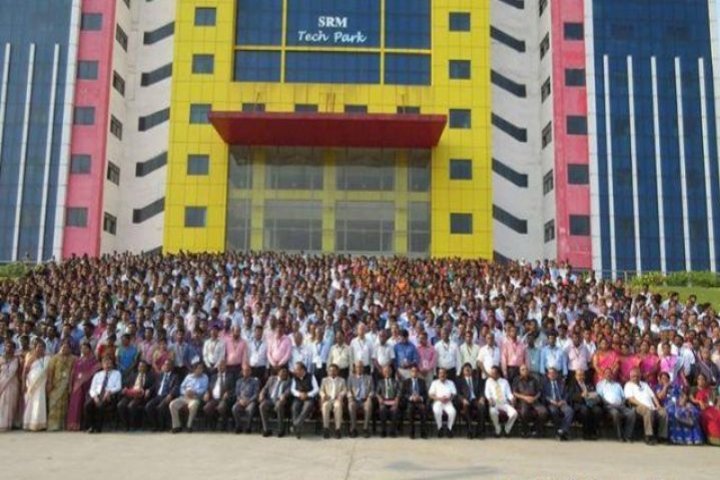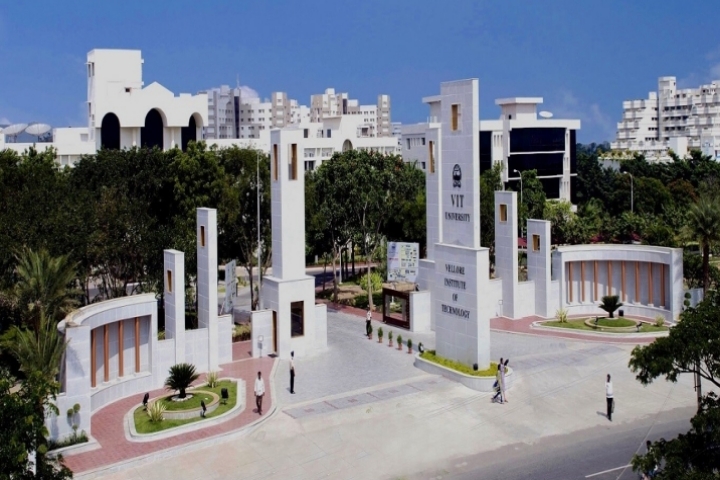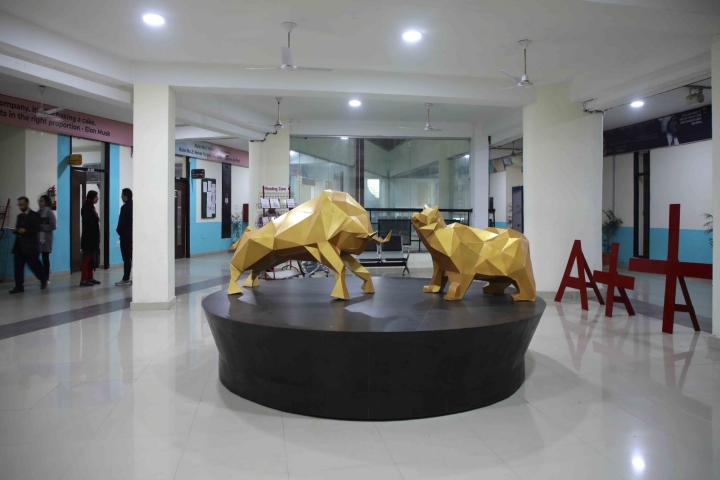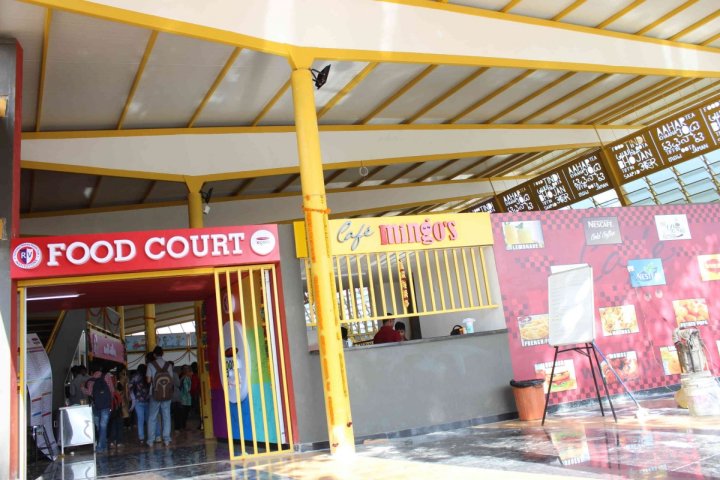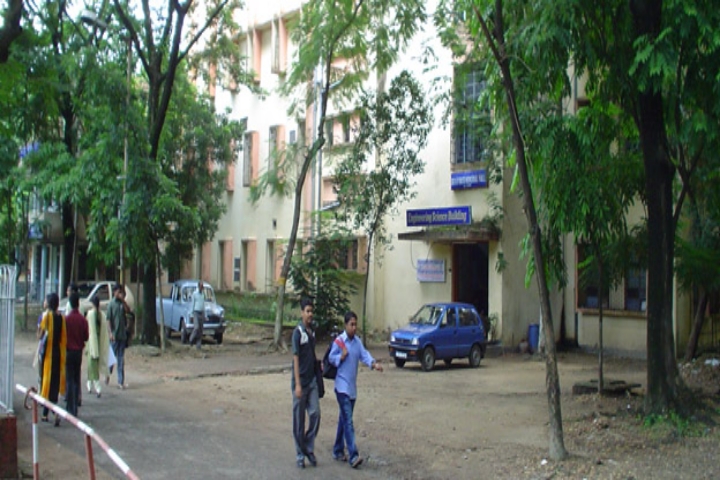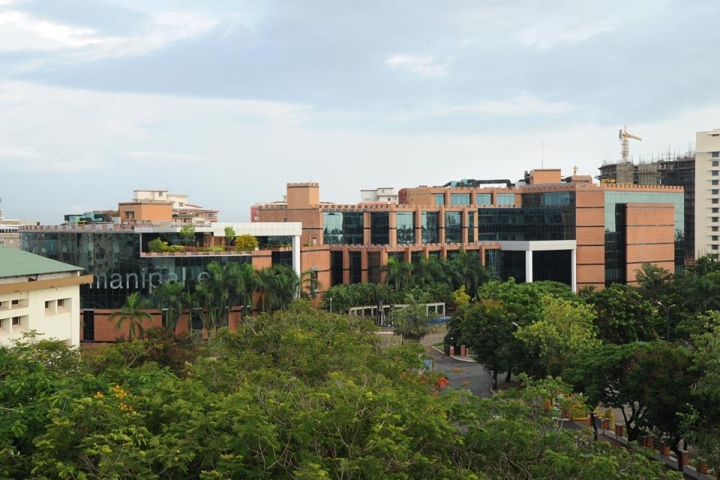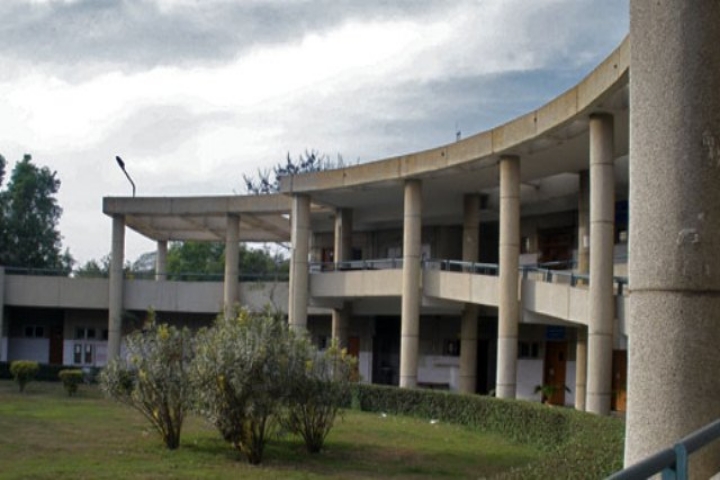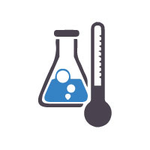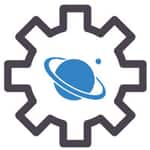
Software Engineering Course Details - Fees, Subjects, Syllabus, Duration, Eligibility, Career Scope
Degrees offered: M.E /M.Tech., B.E /B.Tech, B.Sc.(Hons), BS, M.Sc.
What is Software Engineering
Software Engineering is a specialised field of Computer Science that focuses on the design, development, testing, and maintenance of software systems. The course helps students gain practical and technical skills to create reliable and efficient software solutions used across industries like IT, healthcare, finance, and education.
Students can pursue Software Engineering courses at the undergraduate and postgraduate levels. For admission to UG courses, candidates must have completed 10+2 in the Science stream with a minimum of 50 per cent marks. For PG courses, a bachelor’s degree in Software Engineering or a related field with at least 50 per cent marks is required.
Software Engineering courses prepare students for careers in software design, development, and project management. Graduates can explore roles such as Application Developer, Software Engineer, Web Developer, and System Analyst in top IT companies and technology-driven organisations.
Software Engineering: Highlights
The Software Engineering course offers a strong foundation in programming, software design, and system management. It focuses on developing the technical and analytical skills needed in the IT industry. Below are the key highlights of the Software Engineering course, including duration, eligibility, admission process, fees, top recruiters, and career options:
Particulars | Values |
|---|---|
Branch Name | Software Engineering |
Degree | |
Duration | UG: 4 years PG: 2 years |
Eligibility Criteria | UG: 10+2 in the Science stream PG: Bachelor's degree in Software Engineering or a related field |
Admission Process | Entrance Examination/ Direct Admission |
Top Entrance Exams | JEE Main, JEE Advanced, BITSAT and GATE. |
Average Course Fees | Rs. 72,000 to Rs. 16.40 Lakhs |
Career Options | Application Software Engineer, Web Developer, System Software Engineer and System Analyst. |
Average Salary | Rs. 8.8 LPA ( for a Software Engineer) |
Top Recruiting Companies | Google, Facebook, Accenture, Microsoft, Amazon and Infosys |
Specialisation or Similar Ones
Software Engineering is a vast and evolving discipline that covers several specialised areas within computer science and technology. It focuses on designing, developing, and optimising software systems while ensuring efficiency, security, and reliability. Below are some of the major specialisations related to Software Engineering:
Web Development | |
Data Engineering | |
Artificial Intelligence & Machine Learning | Software Testing & Quality Assurance |
Embedded Systems Development | Mobile Application Development |
Top Private Software Engineering Colleges in India
Many private institutes in India offer Software Engineering courses, with admissions based on entrance exams or merit scores. These colleges provide modern infrastructure, practical training, and industry exposure to students. Private institutes generally have higher fees compared to government colleges. Below are some of the top private Software Engineering colleges in India.
| Top Colleges | NIRF Rank | Fees |
|---|---|---|
BITS Pilani | 11 | Rs. 2.67 Lakhs |
14 | Rs. 17 Lakhs | |
16 | Rs. 11.10 Lakhs | |
Kalasalingam Academy of Research and Education, Virudhunagar | 33 | Rs. 12 Lakhs |
36 | Rs. 5.55 Lakhs | |
48 | Rs. 16.40 Lakhs | |
59 | Rs. 4 Lakhs | |
69 | Rs. 3.08 Lakhs | |
89 | - | |
101-150 | Rs. 1.62 Lakhs |
Note: The fee structure provided above can be for any particular Software Engineering course (Diploma/ Degree/PGD).
Top Government Software Engineering Colleges in India
Several government institutes in India offer Software Engineering courses, providing quality education at lower fees compared to private colleges. These institutes are supported by experienced faculty and strong industry connections, ensuring comprehensive learning. Mentioned in the table below are the top government Software Engineering colleges in India, according to their NIRF rank.
| Top Colleges | NIRF Rank | Fees |
|---|---|---|
13 | Rs. 2.78 Lakhs | |
18 | Rs. 72,000 | |
30 | Rs. 9.79 Lakhs | |
49 | Rs. 2.05 Lakhs | |
62 | Rs. 2.36 Lakhs | |
81 | Rs. 1.84 Lakhs | |
101-150 | Rs. 3.74 Lakhs | |
101-150 | Rs. 1.80 Lakhs | |
101-150 | - | |
151-200 | Rs. 86,800 |
Eligibility Criteria (UG & PG) of Software Engineering
Candidates applying for Software Engineering courses must ensure they meet the general eligibility requirements for both undergraduate and postgraduate programmes. Admission procedures follow standard engineering course norms, focusing on academic performance and entrance examinations. Below are the general eligibility criteria for both UG and PG courses.
Software Engineering Eligibility Criteria for UG Courses
Students must check the eligibility criteria for the Software Engineering undergraduate course on the official website of the desired institute. Students need to meet the admission requirements set by universities to secure admission. The eligibility criteria for admission to undergraduate programmes in software engineering are as follows:
- Candidates must pass their 12th-grade in the science stream with Physics, Chemistry, and Mathematics as compulsory subjects.
- Students must have a minimum score of 50 per cent in their 10+2 examinations.
- Students are required to sit for relevant entrance exams such as JEE Main, JEE Advanced, and BITSAT to get admitted to the course.
Top Entrance Examinations for UG Courses
To gain admission to top colleges, candidates should appear for the respective entrance examination conducted at the national, state, and university levels. Below, we have provided some of these Software Engineering entrance exams.
| Exam Name | Exam Level | Conducting Body | Exam Schedule |
|---|---|---|---|
National | NTA | ||
National | IITs | ||
University | BITS |
Software Engineering Eligibility Criteria for PG Courses
The candidates wishing to apply for postgraduate courses in the field of Software Engineering must make sure that they fulfil the eligibility criteria set forth by the university or college they wish to attend. The eligibility criteria to get admission into Software Engineering postgraduate programmes are mentioned below:
- Candidates must have a Bachelor’s degree in Software Engineering or any related discipline to be eligible for the PG Programme.
- Students must have a minimum aggregate score of 50 per cent in their undergraduate examinations.
- Students are also required to appear for entrance examinations such as GATE and meet the required cut-off to secure admission.
Top Entrance Examination for PG Courses
Admission to PG courses in Software Engineering is done based on students’ scores in entrance exams like GATE. Details regarding the GATE Exam are mentioned in the table below:
| Exam Name | Exam Level | Conducting Body | Exam Schedule |
|---|---|---|---|
National | IITs |
College Predictors VIEW ALL
Scope of Software Engineering in India and Abroad
Software Engineering offers strong career potential as technology continues to grow across industries. Graduates can work in software development, system analysis, web development, cloud computing, and IT services. The course prepares students with technical and problem-solving skills, making them highly employable in India and abroad.
The global Software Engineering market was valued at USD 64.97 billion (approx. Rs. 5.5 lakh crore) in 2024 and is projected to reach USD 168.63 billion (approx. Rs. 14.3 lakh crore) by 2033, growing at a CAGR (Compound Annual Growth Rate) of 11.18 per cent. This growth highlights excellent career opportunities for skilled Software Engineering graduates worldwide. (Source: Global Growth Insights)
Course Fees Software Engineering
| Minimum Fees | Maximum Fees | |||
|---|---|---|---|---|
| Private | Government | Private | Government | |
| UG | ||||
| PG | ||||
| DOCTORAL | ||||
Course Subjects
The Software Engineering syllabus at undergraduate and postgraduate levels covers core and advanced subjects such as programming, data structures, algorithms, software architecture, cloud computing, software testing, and project management. Both levels combine theory with practical training to prepare students for IT industry roles. Below are the syllabus details for both the UG and PG programmes.
Software Engineering Syllabus for UG Courses
In the UG syllabus of Software Engineering, students learn core concepts such as programming, data structures, algorithms, operating systems, software design, and project management. The course combines theoretical knowledge with practical training to prepare students for diverse roles in the IT industry. In the table below, we have mentioned the B.Tech Software Engineering syllabus of Jain University.
Semester 1 | Semester 2 |
Engineering Physics | Data Structures |
Fundamentals of Electrical and Electronics Engineering | Probability and Vector Space |
Communicative English | Mind Management and Human Values – 2 |
Problem-Solving Techniques | Object-Oriented Programming |
Calculus and Matrix Algebra | Digital Logic Design |
Applied Chemistry | Workshop Practices |
Mind Management and Human Values – 1 | Biology for Engineers |
PCL 1 – Research and Entrepreneurship Project | Python Programming |
- | PCL 1 – Research and Entrepreneurship Project |
Semester 3 | Semester 4 |
Economics for Engineers | Optimization Techniques |
Operating Systems | Software Engineering |
Computer Organisation and Architecture | Theory of Computation |
Foundations of Mathematics – 1 | Web Programming |
Discrete Mathematics and Graph Theory | Open Elective – I |
Design and Analysis of Algorithms | Database Management Systems |
Indian Constitution | Foundations of Mathematics – 2 |
Project Centric Learning | Project 2 |
- | Internship – 1 |
Semester 5 | Semester 6 |
Data Communication and Networks | Automation Testing |
Software Testing | Department Specific Elective – 2 |
Department Specific Elective – 1 | Software Architecture and Design |
Research Methodology | Department Specific Elective – 3 |
Agile Software Development | Open Elective – 3 |
Open Elective – 2 | Environmental Studies |
Project Centric Learning | Project – 3 |
Business Communication and Presentation Skills | Internship – 2 |
Semester 7 | Semester 8 |
Object-Oriented Analysis and Design | Software Project Management |
Department Specific Elective – 4 | Department Specific Elective – 6 |
DevOps | Intellectual Property Rights |
Software Quality Management | IT Infrastructure Technology |
Department Specific Elective – 5 | Research |
Open Elective – 4 | Internship – 3 |
Project – 4 | - |
Software Engineering Syllabus for PG Courses
In the PG syllabus of Software Engineering, students gain advanced knowledge in software architecture, cloud computing, agile processes, software testing, and specialised electives. The course emphasises research, practical applications, and industry-relevant skills to prepare graduates for leadership and technical roles. In the table below, we have mentioned the M.Tech Software Engineering syllabus of BITS Pilani.
Semester 1 | Semester 2 |
Software Architectures | Software Quality Assurance and Testing |
Cloud Computing | Elective – 1 |
Agile Software Processes | Elective – 2 |
Software Product Management | Elective – 3 |
Semester 3 | Semester 4 |
Elective – 4 | Dissertation |
Elective – 5 | - |
Elective – 6 | - |
Elective – 7 | - |
Electives | |
Data Structures & Algorithms Design | Data Visualisation and Interpretation |
Artificial and Computational Intelligence | Blockchain Technologies & Systems |
Cyber Security | Data Warehousing |
Applied Machine Learning | Secure Software Engineering |
Middleware Technologies | Advanced Topics in Software Engineering |
Careers in Software Engineering
Graduates of Software Engineering can explore roles in creating and maintaining applications, designing web solutions, analysing IT systems, managing cloud infrastructure, and leading software projects. These positions offer professional growth, skill development, and competitive pay. Below are some of the top career opportunities in Software Engineering:
| Job Profiles | Description |
|---|---|
Software Engineers develop, test, and maintain software applications for various industries. They collaborate with teams to create efficient, scalable, and reliable software solutions. | |
Application Software Engineer | Application Software Engineers design and implement specific software programmes to meet business or user needs. They focus on functionality, usability, and performance of applications. |
Web Developers build and maintain websites and web applications, ensuring smooth functionality and responsive design. They work with programming languages, frameworks, and content management systems to enhance user experience. | |
Computer System Analysts evaluate and improve computer systems for organisations. They analyse requirements, design system solutions, and ensure software and hardware integrate effectively. |
Upcoming trends
In today’s digital era, the Software Engineering industry is evolving rapidly, driven by increasing reliance on technology and widespread internet access. Engineers must adapt to new tools, methodologies, and user demands to stay competitive. Below are some of the emerging trends in the Software Engineering industry.
- Cloud-Native and Edge Computing
- Artificial Intelligence (AI)-Native Software Engineering
- Cybersecurity-First and DevSecOps Culture
- Blockchain and Decentralised Systems
- Automation, Low-Code/No-Code Development, and Platform Engineering
- User Experience (UX) and Human-Centred Design
Job Profiles and Top Recruiters
 Amazon.com Inc.
Amazon.com Inc. Apple Inc.
Apple Inc. Facebook Inc.
Facebook Inc. Google LLC
Google LLC Microsoft Corporation
Microsoft Corporation Accenture Services Private Limited
Accenture Services Private LimitedTop recruiters in Software Engineering hire graduates for roles in software development, system analysis, web development, cloud computing, and project management. They look for skilled professionals with technical expertise, problem-solving abilities, and practical experience. Below are some of the top recruiters in the Software Engineering field.
Top Recruiters
- Accenture
- Microsoft
- Amazon
- Infosys
Average Salary
The average salary of Software Engineering professionals varies based on experience, skills, and job roles. Fresh graduates earn moderate packages, while experienced candidates in specialised or managerial positions receive higher pay. Below are the average salaries for different Software Engineering job profiles:
| Job Profiles | Average Salary (LPA) |
|---|---|
Software Engineer | Rs. 8.8 LPA |
Application Software Engineer | Rs. 8.5 LPA |
Web Developer | Rs. 4.6 LPA |
Computer System Analyst | Rs. 15 LPA |
Source: AmbitionBox
Required Skillset for Software Engineering
Students pursuing Software Engineering need both technical knowledge and practical abilities to do well. These help them solve problems, work in teams, and adapt to new technologies. Building such skills prepares graduates for academic success and professional growth. Below are the key skills required for Software Engineering:
- Problem-Solving
- Attention to Detail
- Teamwork
- Multitasking
- Communication Skills
Course Curriculum for Software Engineering
The undergraduate Software Engineering curriculum introduces students to programming, algorithms, data structures, computer architecture, and software development processes. Early coursework focuses on building technical skills and understanding system design, preparing students for practical applications in software creation and problem-solving across industries.
Postgraduate Software Engineering programmes cover advanced topics, such as software architecture, agile development, quality assurance, cloud computing, and specialised electives. Students also engage in research projects and practical assignments, gaining experience in managing complex software systems and preparing for leadership or technical roles in IT and software development careers.
Popular Software Engineering Entrance Exams in India
GATE
Exam Date: 14 Feb, 2026 - 15 Feb, 2026
COMEDK UGET
Application Process: 03 Feb, 2026 - 16 Mar, 2026
MHT CET
Application Process: 10 Jan, 2026 - 12 Feb, 2026
SRMJEEE
Application Process: 16 Apr, 2026
Karnataka PGCET
Exam Date: 23 May, 2026
LPU NEST
Application Process: 26 Jan, 2026 - 10 Mar, 2026
Popular Software Engineering Colleges in India VIEW ALL
RVCE Bangalore
- Fees: ₹ 161720
- Exams: GATE , Karnataka PGCET
MIT Manipal
- Fees: ₹ 400000
- Exams: GATE , MET M.Tech
Frequently Asked Questions (FAQs)
Question: What are some important exams in the field of Software Engineering?
Answer :
The top exams in the field of Software Engineering are JEE Main, JEE Advanced, BITSAT, and GATE (the GATE exam is specifically for postgraduate courses).
Question: What is the average salary of a Software Engineering graduate?
Answer :
The salary depends on the company, job role, experience of the candidate, and location of the company. The average salary of a Software Engineer in India, according to AmbitionBox, is Rs. 8.8 LPA.
Question: What is the duration of Software Engineering courses at undergraduate and postgraduate level?
Answer :
The duration of undergraduate courses in the field of Software Engineering is four years, and for postgraduate courses is two years.
Question: What are the top companies hiring Software Engineering graduates?
Answer :
Numerous companies hire Software Engineering graduates, including leading organisations, such as Facebook, Apple, Google, Accenture, Microsoft, and Amazon.
Question: What are some career options in the field of Software Engineering?
Answer :
Career options in Software Engineering include roles such as software developer, web developer, system analyst, application engineer, cloud engineer, and software quality assurance specialist. Graduates can also pursue positions in project management, cybersecurity, data analytics, and research, depending on their skills and interests.
Question: What are the key responsibilities of a software engineer?
Answer :
Software engineers are responsible for designing, developing, testing, and maintaining software applications. They also collaborate with teams to solve technical problems and ensure software meets user and business requirements.
Question: What are the top colleges to pursue software engineering in India?
Answer :
The top colleges in India for software engineering are VIT Vellore, NIT Durgapur, BITS Pilani, MIT Manipal, LPU Jalandhar, and IIIT Allahabad.
Question: Which programming languages a software developer should know to work on?
Answer :
Many programming languages vary from each other depending upon the use. Some of them that come quite handy to a software developer are Python, JAVA, C Programming, LISP, MATLAB, and SQL.
Question: Which one is better- BCA or BTech in Computer Science, to be a software engineer?
Answer :
BCA is a three-year undergraduate degree, designed to build programming skills for developing resource software and websites. On the other hand, a B.Tech. in Computer Science is a four-year undergraduate degree that trains students at a technical level (Software, Hardware, applications). It is more focused on making new technology and mathematical skills, and concepts.






